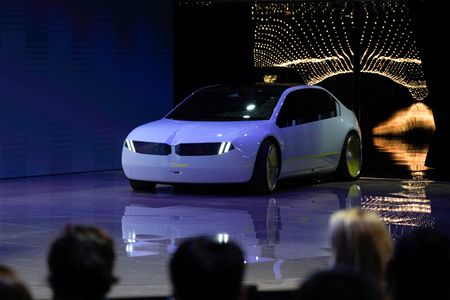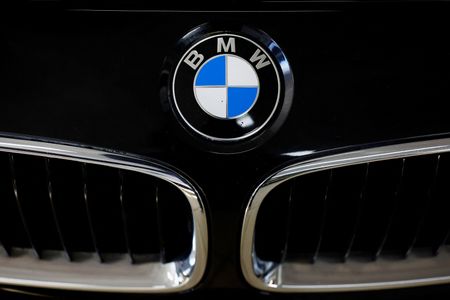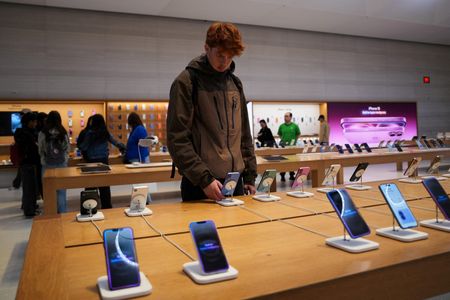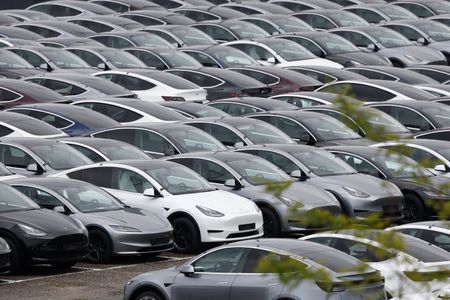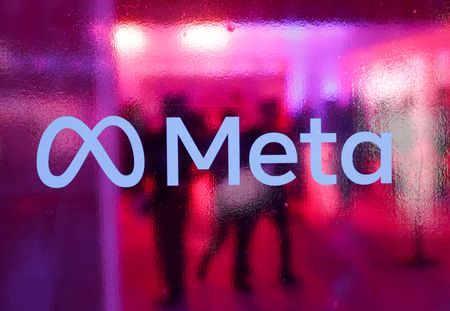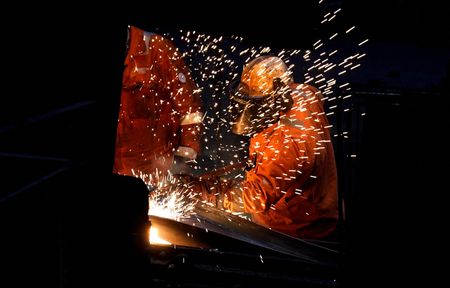By Rachel More and Christina Amann
BERLIN (Reuters) -Germany’s BMW maintained its full-year guidance on Thursday despite U.S. tariffs and quarterly earnings dropping by a third, arguing that its large manufacturing presence in the country gives it an edge over rivals.
By contrast, Volkswagen, its luxury brand Porsche and Mercedes-Benz have all cut their outlooks.
European automakers are still digesting a new 15% tariff agreed between the European Union and U.S. President Donald Trump, which is lower than the current rate of 27.5% for autos, but still poses a major obstacle to their export-focused businesses.
BMW, whose biggest plant is in the United States and is Germany’s top auto exporter by value, said it continues to expect 2025 earnings before tax to be on par with the previous year when it logged just under 11 billion euros ($12.6 billion).
That’s despite issuing its initial forecast in March, before Trump imposed tariffs on auto imports.
It has also forecast an EBIT margin for its automotive segment of 5.0 to 7.0%.
“Our footprint in the U.S. is helping us limit the impact of tariffs,” CFO Walter Mertl said in a statement.
“Thanks to precise financial control, based on calculated forecasts, we are firmly on track to achieve our targets for the year at the six-month mark,” he added.
BMW said that it assumed tariff negotiations were ongoing.
CEO Oliver Zipse welcomed the EU’s tariff deal with Trump, which is set to lower tariffs on both sides of the Atlantic, but stressed that swift implementation was key.
On a possible mechanism to offset imports and exports in exchange for tariff relief, which BMW would stand to benefit from, Zipse said his company would continue to push for this, but added – like his Volkswagen and Mercedes counterparts – that any sector-wide deal was unlikely.
‘OVERBLOWN’ TARIFF DEBATE
BMW exported around 225,000 vehicles produced at its Spartanburg, South Carolina, plant in 2024, while it sold around 400,000 autos in the U.S. market.
Zipse called the tariff debate “overblown” – but even still, they are weighing on results, with separate tariffs imposed by Trump on steel and aluminium also impacting the auto sector more broadly.
EU tariffs on electric cars from China are also a problem for BMW, which produces its electric Mini there under a joint venture.
In 2025, the group expects a tariff-related impact of around 1.25 percentage points on its automotive segment’s profit margin. In the first half of the year, the impact was some 1.5 points.
During the second quarter, pretax earnings slumped 32% to 2.6 billion euros, hurt by currency effects and a decline in sales for China. Sales there slumped 15.5% during the first half.
The quarterly earnings result was, however, slightly higher than analysts’ expectations.
The EBIT margin for its auto division came in at 5.4%, just missing analysts’ forecast for 5.5% in a company-provided poll but within its 2025 target range.
($1 = 0.8731 euros)
(Editing by Miranda Murray and Edwina Gibbs and Louise Heavens)

